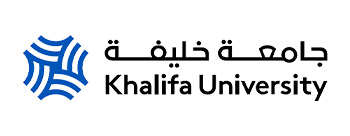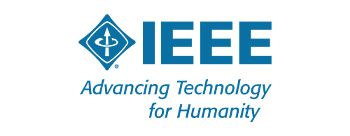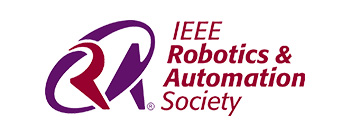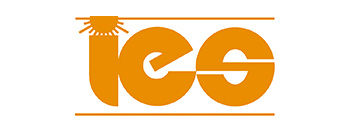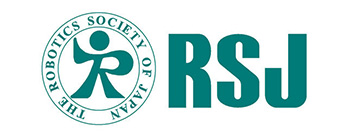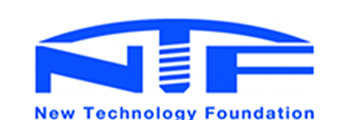Organizers:
Paolo Dario Scuola Superiore Sant’Anna, Professor Emeritus; Dubai Future Labs, Chief Scientist
Arif Sultan Al Hammadi Khalifa University, Senior Advisor to Chairman of the Board
Abstract:
Sustainability is defined in different ways by different entities. The UN World Commission on Environment and Development has given the following definition: “sustainable development is development that meets the needs of the present without compromising the ability of future generations to meet their own needs.” According to the UCLA Sustainability Committee, sustainability is defined as: “the integration of environmental health, social equity and economic vitality in order to create thriving, healthy, diverse and resilient communities for this generation and generations to come. The practice of sustainability recognizes how these issues are interconnected and requires a systems approach and an acknowledgement of complexity.” The One Health approach to sustainability is holistic, and it recognizes that the health of people is closely connected to the health of animals and our shared environment. Starting from these internationally recognized definitions and considerations, this Forum will analyze how Robotics and Artificial Intelligence can contribute to sustainable development in various ways.
The Forum will first set the scene with the contribution of prominent experts in sustainability; then several examples will be presented on how robotics and AI can take care of the world; afterwards, models, design solutions and technologies to make future robots sustainable will be illustrated by various experts. Participants will be actively engaged in lively discussions on all the above topics, and will have the opportunity to ask questions to the experts and to propose their ideas and solutions.
Time:
Tuesday, October 15th , 14:00-17:00
Location:
Auditorium
Speakers:
H.E. Amna bint Abdullah Al Dahak, Minister of Climate Change
and Environment, UAE
H.E. Mohamed Al Hammadi, , ENEC MD & CEO
Dr. Barbara Mazzolai, Italian Institute of Technology
Dr. Patrick Noack, Executive Director, Dubai Future Foundation
H.E. Mohamed Al Hammadi, Managing Director and ENEC Chief
Executive Officer
Mohamed Lamine Seghier, Director, Healthcare Engineering
Innovation Center, Khalifa University
Auke Ijspeert, EPFL, Novel paradigms in biorobotic design
Rashid Al Hosani,Chief Strategy & Growth Officer, MAQTA
GATEWAY
Alberto Pirni, Institute of Law, Politics and Development by the
Sant’Anna School of Advanced Studies (Pisa), Research Area in
“Ethics and Global Challenges”.
H.E. Hamad Alyahyaee, Advisor to the Minister of Education and
the General Director of the Mohamed Bin Rashid Smart Learning
Program at the Ministry of Education.
Cesare Stefanini, BioRobotics Institute of Scuola Superiore
Sant’Anna of Pisa, Italy, Area Leader in Creative Engineering
Design
Chinwe Ekenna, University of Albany.
Thomas MacKarthy, TII BREAKING BARRIERS IN EDUCATION.
The paradigm of INTERDISCIPLINARITY and CREATIVITY
Agenda:
| Time | Invited Speakers | Moderators |
|---|---|---|
| Session 1 “SETTING THE SCENE: the Challenges, the role of Governments | ||
| 14:00 – 14:45 |
H.E. Amna bint Abdullah Al Dahak, Minister of Climate
Change and Environment,
UAE
H.E. Mohamed Al Hammadi, Managing Director and ENEC Chief Executive Officer |
Dr. Arif Sultan Al Hammadi |
| Session 2 “SCENARIOS OF THE FUTURE” | ||
| 14:45 – 15:30 |
Dr. Barbara Mazzolai, Italian
Institute of Technology
Dr. Patrick Noack, Executive Director, Dubai Future |
Prof. Paolo Dario |
| Session 3 “GRAND CHALLENGES and OPPORTUNITIES. The role of Robotics and AI” | ||
| 15:30 – 16:10 |
Prof. Mohamed Lamine
Seghier, Director,
Healthcare Engineering
Innovation Center, Khalifa
University
Prof. Auke Ijspeert, EPFL Rashid Al Hosani, Chief Strategy & Growth Officer, Maqta Gateway Prof. Alberto Pirni, Institute of Law, Politics and Development, Scuola Superiore Sant’Anna |
Dr. Arif Sultan Al Hammadi |
| Session 4 “EDUCATING TALENTS FOR A SUSTAINABLE WORLD | ||
| 16:10 – 16:50 |
H.E. Hamad Alyahyaee,
Advisor to the Minister of
Education and the General
Director of the Mohamed Bin
Rashid Smart Learning
Program at the Ministry of
Education
Prof. Cesare Stefanini, Director of the BioRobotics Institute of Scuola Superiore Sant’Anna Dr. Chinwe Ekenna, University of Albany Thomas McCarthy |
Prof. Paolo Dario |
| 16:50 – 17:00 | WRAP-UP AND CONCLUSION OF THE FORUM by the Organizers | |
Organizers:
Prof. Andrea Bertolini (Sant’Anna School of Advanced Studies, Pisa, Italy)
Abstract:
Europe is the first global power to regulate artificial intelligence, and for the understanding of the European commission robotics, and it's related technologies, all squarely fall within the definition of artificial intelligence. The European move is a global move with a clear political meaning. The idea is to distinguish Europe from all other global players, in particular, China and the United States. These, indeed, are well-known to have some of the most advanced AI related technological research and businesses capable of fully exploiting advanced technologies. Within such a picture, Europe is attempting to position itself as the first global regulator of advanced technologies, defining a European approach, and depicting a different way of unleashing technological innovation. Whether Europe will succeed or not in establishing itself as a global leader in AI-regulation is a complex question to be answered, and ultimately only history will be able to tell.
The purpose of this forum is that of providing both the global and the European perspectives on technology regulation. As per the former, it is necessary to frame the European move within a global political debate and determine the European strategy, and how European players are going to react to such kind of regulatory innovation. As per the latter, it is necessary to provide some guidance on how this very complex piece of legislation, the 500-pages-long AI Act, will affect innovation, research and development of advanced AI based. application, including robotic ones.
In particular, the second part of the forum will provide an in-depth understanding of the regulatory implications of the AI Act, framed as a form of product safety legislation, not so distant from those European directives and regulations that engineers are all so well-familiar with standardization and product certification are key aspects of the AIA, together with obligations to perform a fundamental right impact assessment. That is a complex requirement that some AI based systems will have to undertake. However, as of today, it's not so clear what that will entail and how that will affect both research and the industry.
The forum brings together some of the leading global expert in the field of technology regulation to provide you with an understanding of all such complex aspects and favor a debate of the technical community with some of the leading law and technology experts.
website:
Visit WebsiteTime:
Wednesday, October 16th , 09:00-12:00
Location:
Rooms 17/18
Speakers:
Tatjana Evas, European Commission
Kees Stuurman, Tilburg University, The Netherlands
José Saenz, Fraunhofer IFF, Germany
Jan de Bruyne, KU Leuven, Belgium
Federica Fedorczyk, Sant'Anna School for Advanced Studies, Italy / New York University, USA
Guilherme Migliora, Sant'Anna School for Advanced Studies
Organizers:
Cang Ye (Virginia Commonwealth University, Richmond, VA)
Siddiq Qidwai, US National Science Foundation, USA
Abstract:
In this forum, speakers from government agencies from the United States, European Commission, and Asian countries will present funding opportunities, success stories, and/or roadmaps of their robotics programs. The forum will consist of a series of short lightning talks by the program directors of these agencies followed by a moderated Q&A session.
Time:
Wednesday, October 16th , 09:00-12:00
Location:
Auditorium
Speakers:
Kamel Saidi National Institute of Standards and Technology (USA)
Quek Tong Boon National Robotics Program of Singapore, Singapore
Siddiq Qidwai US National Science Foundation, USA
Steven Thomson National Program Leader, National Institute of Food and Agriculture (NIFA), U.S. Department of Agriculture (USDA)
Moria Bittman Program Director, National Institute of Biomedical Imaging and Bioengineering (NIBIB) of the National Institutes of Health (NIH), USA
Hend Al Tair Ministry of Education, UAE
Tarek Taha Dubai Future Foundation, UAE
Bryn West Science & Technology Officer, US Embassy, Abu Dhabi
Cecile Huet European Commission
Agenda:
| Time | Talk | Speaker | Affiliation |
|---|---|---|---|
| 9:00-9:10 | Welcome and introduction | Siddiq Qidwai | US National Science Foundation |
| 9:10-9:20 | Invited talks | Bryn West | US Embassy, Abu Dhabi |
| 9:20-9:30 | Quek Tong Boon | National Robotics Program of Singapore | |
| 9:30-9:40 | Hend Altair | Ministry of Education, UAE | |
| 9:40-9:50 | Moria Bittman | NIBIB, National Institutes of Health, USA | |
| 9:50-10:00 | Tarek Taha | Dubai Future Foundation, UAE | |
| 10:00-10:10 | Kamel S. Saidi | NIST, USA | |
| 10:10-10:20 | Siddiq Qidwai | US National Science Foundation | |
| 10:20-10:30 | Steven Thomson | NIFA, USDA | |
| 10:30-10:40 | Cecile Huet | European Commission, EU | |
| 10:40-11:30 | Q & A |
Call for Participation
We invite researchers (including faculty, students, and industry engineers) from, or collaborating with, African institutions to submit a 2-4 page extended abstract following the IEEE conference format. These abstracts should highlight exciting research outcomes, ongoing projects, and demonstrations that showcase the diverse landscape of robotics research and industry initiatives in Africa. The forum organizers will review the submissions, and accepted abstracts will be featured in the poster and demo presentation session during the forum. The results from the forum will be collated into a peer-reviewed publication.
Submission Link: Click here
Submission format templates: Click here
Program Committee:
Chinwe Ekenna (University of Albany),
Kenechukwu C. Mbanisi (Olin College of Engineering),
Simeon Adebola (University of California, Berkeley),
Addisu Taddese (Intrinsic)
Steering Committee:
Ken Goldberg (UC. Berkeley),
Amir Patel (University of Cape Town),
David Vernon, (Carnegie Mellon University Africa),
Aisha Walcott-Bryant (Google Research).
Abstract:
The forum serves as a spotlight, illuminating the remarkable work happening in the field of robotics across the African continent. From cutting-edge research to practical industrial applications, education, and training, this forum aims to showcase the state of robotics in Africa. By providing legitimacy, publicity, and credibility, we celebrate novel and innovative efforts undertaken by Africans and their collaborators. In addition, we plan to incorporate the Pan African robotics competition (PARC) into this forum and elevate the yearly competition and outcomes https://parcrobotics.org/.
Key Objectives:
Highlighting Excellence: We shine a light on outstanding work going on the continent, emphasizing the impact of robotics research and development in Africa.
Exploring Opportunities: The forum explores opportunities for robotics and A.I. applications within the continent, identifying areas for growth and collaboration.
Networking: Beyond borders, this event fosters networking opportunities, connecting robotics enthusiasts within Africa with the global robotics community.
website:
Visit WebsiteTime:
Wednesday, October 16th , 15:30-18:30
Location:
Auditorium
Speakers:
David Vernon, Carnegie Mellon University Africa, Rwanda
Amir Patel, University College London, UK
Paul Amayo, University of Cape Town, South Africa
Marwa ElDiwiny
Organizers:
Dr. Thomas Gerard McCarthy (ASPIRE, Abu Dhabi, UAE)
Giuseppe Loianno, New York University, USA
Abstract:
The United Arab Emirates (UAE) has established itself as a global hub for innovation andtechnology, particularly in the fields of robotics and artificial intelligence (AI). With a strategic focus on fostering research, education, and industry collaboration, the UAE offers a compelling landscape for discussing advancements and future opportunities in these transformative areas.
The forum will bring together experts from both academia and industry to assess the current state of robotics and AI in the UAE at various levels. The discussion will begin by exploring research programs, initiatives, and educational opportunities, highlighting how these can contribute to the development of applied research centers and startups, effectively bridging academia and industry. Next, the focus will shift to entrepreneurship, analyzing how industries leverage robotics and AI in their current product chains and identifying key investment areas for existing and future industries planning to invest in the country. Throughout the forum, a strong emphasis will be placed on strategic actions to enhance the impact and integration of these technologies in existing industries and future smart infrastructure. Additionally, there will be a focus on attracting talented individuals and showcase prospective investment paths in cutting edge start-ups to the UAE to ensure sustainable progress and foster a virtuous development cycle, creating a continuous loop from education to entrepreneurship and industrial development. Finally, the forum will highlight efforts in how some of these activities can contribute to help the growth of emerging countries.
Key Discussion Areas:
1. Research and Education: The UAE places significant emphasis on nurturing talent through robust & AI educational initiatives and research opportunities:
- Universities: Leading institutions such as Khalifa University and MBZUAI are pivotal in shaping the future workforce by offering specialized programs in robotics and AI.
- Local Student Competitions: Initiatives like the F1Tenth and drone competition provide students with hands-on experience in autonomous driving and robotics, fostering a culture of innovation from an early stage.
- International Robotics Competitions: The A2RL and MBZIRC competitions exemplify the UAE’s commitment to cutting-edge research, enhancing capabilities in autonomous systems and human-robot interaction through participation in global competitions.
2. Institutes and Startups: Research centers and startups play a crucial role in driving innovation and bridging academia with industry:
- Research Institutes: Technology Innovation Institute (TII) serves as a nucleus for advanced technology research, focusing on AI, robotics, and autonomous systems. DFF supports robotics research for manufacturing and industrial applications.
- Venture Funds: Through initiatives like Venture One and Dubai Future District Fund the UAE supports startups in scaling their innovations, contributing to the UAE’s burgeoning tech ecosystem.
- Startups: Examples such as Hub71, a leading AI and cloud computing company, underscore the success of integrating research with commercial applications, offering career opportunities to skilled professionals and graduates.
3. Industry and Corporations: Major industrial and corporation entities in the UAE are pivotal in adopting robotics and AI to drive efficiency and innovation across various sectors:
- Industries and Corporations: ADNOC utilizes robotics and AI in oil and gas operations to enhance safety and productivity, showcasing the transformative impact of technology in traditional industries. Etihad Rail, Etihad Airways, and Emirates Airlines leverage robotics and AI for optimizing logistics, enhancing passenger experience, aircraft automated inspection, and operational efficiency, contributing significantly to the UAE’s economy and global connectivity.
- Future Investments: Several robotics companies like PAL are planning to open development branches in the region.
website:
Visit WebsiteTime:
Wednesday, October 16th , 15:30-18:30
Location:
Rooms 17/18
Speakers:
Tarek Taha, Dubai Future Labs
Khaled Al Blooshi, ADNOC
Francesco Ferro, PAL Robotics
Hend Al Tair, Ministry of Education UAE
Khalifa AlQama, Dubai Future Labs and Robotics and Automation Society UAE
Stephane Timpano, ASPIRE
Amal AlMarri, ASPIRE
Jorge Dias, Khalifa University
Enrico Natalizio, TII
Dirk Richter, 01Lab
Michael Scheibenreif, UNICEF
Agenda:
| Time | Talk | Speaker |
|---|---|---|
| 15.30 - 15.45 | Welcome and Introduction | Introduction by Dr. Thomas Gerard McCarthy |
| 15.45 - 16.30 | Panel 1 - Research and Education | |
| 16:30 - 16:45 | Coffee break | |
| 16:45 - 17:30 | Panel 2 - Institutes and Startups | |
| 17:30 - 18:15 | Panel 3 - Industry and Corporations | |
| 18:15 - 18:30 | Conclusion |
Organizers:
Norihiro Hagita (Advanced Telecommunications Research Institute International (ATR), Kyoto, Japan),
Paolo Dario (Scuola Superiore Sant'Anna, Pisa, Italy),
Alberto Sanfeliu (Universitat Politècnica de Catalunya, Barcelona, Spain),
Hiroshi Ishiguro (Osaka University, Osaka, Japan),
Yukiko Horikawa (Advanced Telecommunications Research Institute International, Kyoto, Japan)
Abstract:
Clarifying a vision for the future of autonomous robots and avatars is an inevitable and important step in our society. In this Forum we focus on AVATARS, that - in contrast to autonomous robots - are teleoperated. Our main scientific question is whether a single teleoperator can control dozens, and eventually thousands, of avatars simultaneously. Another scientific question is about the technical feasibility and acceptability of avatars in different forms and shapes.
We realized during COVID19 that avatars would reduce wasted flights, contribute to the prevention of global warming and enable people to work in the office while raising children at home. Thus, avatar is effective in freeing people from the constraints of space and time. People with severe disabilities can have employment opportunities involving physical movement while staying at home by collaborating with others through avatars that can share physical experience. Experiments have also begun with avatars that use BMI (brain-machine interface) instead of hand and foot controls to walk around cyberspace as they wish, shop and remotely control a robotic arm. These avatars can provide an effective means for a variety of people wishing to free themselves from physical, perceptual and/or cognitive constraints. Grand challenges have also been initiated to realize health monitoring and ultraminimally invasive diagnostics in the future by distributing and coordinating multiple types of intravital multiple-avatars on the millimeter-, micro- and nanoscale and by teleoperating intracellular multiple-avatars in multiple bodies. In pursuing these grand challenges, there are institutional issues related to identity authentication such as fake videos, safety and security issues related to avatars being taken over by others, and ethical, economic, environmental, legal and social issues(E3LSI).
The forum will focus on these grand challenges and cutting-edge research results of the JST Moonshot Goal 1 program in Japan, which is driving the above-mentioned challenging research and development of multiple avatars, called Cybernetic Avatars(CAs). It aims to realize a future society in which human beings can be free from limitations of body, brain, space and time by 2050. Participants can get hands-on experience with avatars in Japan and Dubai in Abu Dhabi by attending the two workshops in IROS2024, which are related to this forum, in advance. The invited talks presenting the latest results from these Grand Challenges, the panel discussion and the Q&A with the attendees will help everyone to imagine the future society of Human-Avatars Symbiosis.
website:
Visit WebsiteTime:
Thursday, October 17th , 09:00-12:00
Location:
Rooms 17/18
Speakers:
Sven Behnke, University of Bonn, Germany
Kouta Minamizawa, Keio University, Japan
Ryota Kanai, Araya inc., Japan
Fumihito Arai, University of Tokyo, Japan
Yoko Yamanishi, Kyusyu University, Japan
Kumi Fujisawa, Institute for International Socio-Economic Studies (IISE), Japan
Kyoko Yoshinaga, Keio University, Japan
Organizers:
General Forum Chairs:
Prof. Kinda Khalaf (Khalifa University, Abu Dhabi, UAE)
Dr. Reem Ashour (Technology Innovation Institute (TII), Abu Dhabi, UAE)
Program Committee:
Dr. Diana Dawoud (University of Dubai, UAE)
Website and Social Media Committee:
Sara Aldhaheri (Technology Innovation Institute (TII), Abu Dhabi, UAE)
Dr. Anna Maria Pappa (Khalifa University, Abu Dhabi, UAE)
Dr. Lilas Alrahis (Khalifa University)
Rapid-Fire Talk Coordinator Committee:
Dr. Gihan Daw Elbait (Khalifa University, Abu Dhabi, UAE)
Dr. Yasmin Halawani (University of Dubai, UAE)
Awards and Certificates Committee:
Dr. Maisam Wahbah (University of Dubai, UAE)
Advisors:
Dr. Gulia De Masi (Khalifa University, Abu Dhabi, UAE)
Prof. Jorge Dias (Khalifa University, Abu Dhabi, UAE)
Abstract:
In an effort to advance inclusivity within the robotics sector, we are pleased to present the 'Empowering Diverse Voices in Robotics' forum at the 2024 IEEE/RSJ International Conference on Intelligent Robots and Systems (IROS), proudly supported by IEEE Women in Engineering.
This event aims to celebrate the remarkable achievements of individuals from a wide range of backgrounds and cultivate a more inclusive environment in robotics and technology. The forum will showcase a keynote address and a panel discussion, providing a dynamic and inspirational atmosphere for all attendees and participants. These sessions will illuminate the varied experiences and perspectives driving innovation in robotics, while addressing the unique challenges faced by underrepresented groups in the field. Our goal is to inspire students and young professionals by highlighting success stories and providing a platform for the exchange of innovative ideas. We seek to enrich networking opportunities and foster a culture of diversity and inclusion within the IEEE Robotics Society and the broader community.
website:
Visit WebsiteTime:
Thursday, October 17th , 09:00-12:00
Location:
Auditorium
Speakers:
Maria Eugenia Beltrán, Khalifa University. UAE
Rana Azzam, Khalifa University. UAE
Yukie Nagai, Project Professor, International Research Center for Neurointelligence, The University of Tokyo
Paola Ardón, Technology Innovation Institute, UAE
Organizers:
Paolo Fiorini (Needleye Robotics, Verona, Italy),
Pietro Valdastri (University of Leeds, UK), Kinda Khalaf (Khalifa University, Abu Dhabi, UAE),
Tim Horeman (Delft University of Technology, The Netherlands),
James Chandler (University of Leeds, UK),
David Jayne (University of Leeds, UK),
Franziska Mathis-Ullrich (Friedrich-Alexander-Universität Erlangen-Nürnberg, Germany),
Hongliang Ren (The Chinese University of Hong Kong, PRC),
Ferdinando Rodriguez Y Baena (Imperial College, London, UK),
Emmanuel Vander Poorten (Katholieke Universiteit Leuven, Belgium)
Abstract:
Medical and surgical robotics are one of the fastest growing sectors of service robotics, yielding important medical advances and great economic returns to the investors. However, the actual number of robot-assisted procedures worldwide is still very small: robotic surgical interventions account for only the 0.1% of the total number of major surgeries done every year in the world.
We believe the reasons for the low penetration of medical robotics are primarily two: the huge cost (direct or indirect) of the devices and their maintenance, and the lack of simpler devices that can be used in low cost, but high number, procedures. In short, medical and surgical robotics are NOT sustainable with their current business model: few hospitals, even in rich Countries can afford these devices, and their operating costs are hardly affordable by most hospitals. The high cost of the devices derives from the huge investments necessary to reach the market, and by the fast return on the investments expected by the funding organizations. Thus, surgical robots can only be used in complex interventions, that have high reimbursement rates. Simpler devices that could improve the quality of diagnostic and routine procedures are not developed because they do not meet the investment parameters.
In this forum we want to discuss the difficulties and the benefits of developing low cost medical/surgical robotic devices that can guarantee top performance at a fraction of the cost of current devices. The difficulties to achieve this goal are many, from the high cost of certification and experimentation to the marginal performance of low cost components. Thus, sustainable devices must rely on new technical developments to achieve high performance at low cost, on new simpler certification procedures and of course, on venture investment driven also by ethical and sustainable principles.
This forum will aim at stimulating discussion among the participants on the feasibility and difficulties of development and translation of low cost robotics into the healthcare setting. The first part of the forum will be dedicated to medical and technical presentations from the organizers related to their low-cost medical robotic solutions. This part aims to give participants broad exposure to the pertinent topic areas associated with low-cost robotic diagnosis, surgery and rehabilitation, that are developed using frugal, versatile, modular technologies for interdisciplinary and reusable clinical use.
The second part of forum will be devoted to a round table discussion with institutional and private organizations that may fund medical device development. This will aim to validate the feasibility of sustainable medical robots that could disrupt the current market and identify translational ‘blind spots’ through engagement with physicians, health economists, engineers and relevant industry.
Time:
Thursday, October 17th , 15:30-18:30
Location:
Auditorium
Speakers:
Melkamu Hunegnaw Asmare, Leuven Center for Affordable Healthcare Technology, BELGIUM
Pietro Valdastri, University of Leeds, UK
Roel Horeman, R.Horeman@tudelft.nl
Hongliang Ren, Chinese University of Hong Kong
Franziska Mathis-Ullrich, FAU Erlangen-Nürnberg, Germany
Organizers:
Shingo Shimoda, (Nagoya University, Japan),
Yasuhisa Hirata, (Tohoku University, Japan),
Shigeki Sugano, (Waseda University, Japan)
Abstract:
In the contemporary era, our lives have been significantly facilitated by a diverse array of robotics and automation technologies. This advancement has reached a point where it is virtually impossible to envision living without them. However, it remains a subject of debate whether these robots truly co-living with us, or if they are merely adjuncts to our daily routines. While these technologies are indispensable and deeply integrated into our lives, they predominantly function as highly convenient tools, facilitating tasks and improving efficiency rather than engaging in any form of social or emotional interactions.
Japan's Moonshot R&D Program Goal 3 is at the forefront of pushing these boundaries. It aims not only to produce disruptive innovations but to do so through bold and innovative research and development based on groundbreaking ideas that transcend conventional technology. Goal 3 of this program is particularly pivotal, focusing on the development of AI robots that can learn, act autonomously, and co-living t with humans in meaningful ways.
Within this framework, the concept of “co-evolution of humans and robots” emerges as a crucial issue. This initiative challenges the traditional paradigm of robot as tool, proposing instead a symbiotic relationship where robots and humans evolve together. It goes beyond the use of robots as convenient tools, envisioning a future where humans and AI robots cohabit, thus fostering human evolution to a new stage. This co-evolutionary approach aims to develop robots that can share human sensibilities and ethical values. Additionally, it anticipates the efficient execution of tasks in environments that were previously challenging for human activity, and it is expected to contribute to new discoveries in the field of science.
This forum discusses on the significant achievements that have been developed under the Moonshot project to date. It also provides a platform to discuss the future trajectory of these developments, exploring potential scenarios and implications of a society where humans and AI co-living and evolve in tandem. The discussions aim to shed light on both the technological advances and the societal transformations that such co-evolution would entail, highlighting the profound impacts on everyday life, work, and broader ethical and social structures.
Time:
Thursday, October 17th , 15:30-18:30
Location:
Rooms 17/18
website:
Visit WebsiteSpeakers:
Lakmal Seneviratne, Khalifa University, UAE
Alin Albu-Schäffer, Institute of Robotics and Mechatronics; TU Munich
Organizers:
Giulia De Masi (Khalifa University, Abu Dhabi, UAE),
Federico Renda (Khalifa University, Abu Dhabi, UAE),
Gabriele Ferri (NATO STO-CMRE - Centre for Maritime Research and Experimentation, LaSpezia, Italy).
Abstract:
The application of marine robotics and technologies to a sustainable use of the Ocean is of utmost importance, as evident by the UN Decade of Ocean Science for Sustainable Development. “Proclaimed in 2017 by the United Nations General Assembly, the UN Decade of Ocean Science for Sustainable Development (2021-2030) (‘the Ocean Decade’) seeks to stimulate ocean science and knowledge generation to reverse the decline of the state of the ocean system and catalyze new opportunities for sustainable development of this massive marine ecosystem. The Ocean Decade provides a convening framework for scientists and stakeholders from diverse sectors to develop the scientific knowledge and the partnerships needed to accelerate and harness advances in ocean science to better understand the ocean system and deliver science-based solutions to achieve the 2030 Agenda.” Marine Robotics and Autonomous Systems can give a strong acceleration in enhancing the knowledge of the underwater environment and allow operations in remote areas. While in the past the monitoring of the Ocean was based on long-term ship surveys and operations were mainly based on divers missions, nowadays, surface and underwater autonomous systems have made possible the development of new systems for sampling the oceans in a sustained and more persistent way, with increased spatio-temporal resolution and at lower costs. This will enhance real-time ocean monitoring, ecosystem preservation, early alarm systems to prevent environmental disasters and guarantee the development of human-marine activities in respect of Ocean health.
Starting from the IEEE Oceanic Engineering Society’s Ocean Decade Initiative, this Forum intends to bring together representatives from Industry, Government, and Academia to discuss opportunities and new partnerships for using robots and advanced engineering solutions for the Ocean in real-world scenarios, leveraging new technological breakthroughs to overcome current barriers. Renowned people from academia, industry, and governments will participate in a roundtable on the upcoming marine robotics revolution to enhance Ocean knowledge and sustainable development.
The forum is a collaboration between IEEE-OES and IEEE-RAS. It aims to strengthen the collaboration between the two societies and better demonstrate the similarities of the challenges presented by the underwater domain with other communication-limited scenarios popular in the broader robotics community. Synergies between different research communities are indeed possible and instrumental to address the common challenges.
website:
Visit WebsiteTime:
Friday, October 18th , 09:00-12:00
Location:
Auditorium
Agenda:
| Time | Talk | Speaker |
|---|---|---|
| 09.00 – 09.10 | Introduction: Ocean Decade Initiative | Dr. Giulia De Masi |
| 09.10 – 09.25 | Progress and challenges in the Conservation of Dolphins in the UAE | Dr. Ada Natoli |
| 09.25 - 09.40 | Underwater Robots: Swimming, Swarming and Feeding | Prof. Cesare Stefanini |
| 09.40 – 09.55 | Exploring Uncharted Waters: Innovative Robotics and FAIR Data for Ocean Science | Dr. Simona Aracri |
| 09.55 –10.10 | Smart Seas and Smart Education: training the new generation of marine robotics engineers | Dr. Francesco Maurelli |
| 10.10 – 10:30 | Advancing Marine Carbon Capture and Its Role in Sustainable Oceans : Integrating Technologies for detection of CO2 leaks in the marine environment | Prof. Henrik Stahl |
| 10:30 – 11:00 | Coffee break | |
| 11:00 – 11:15 | Advancing Ocean Sustainability: The Role of Marine Robotics and Automation in the UN Decade of Ocean Science | Mr. Christofer Whitt |
| 11:15 – 11:30 | Towards sustainable O&G life of field: the Hydrone platform | Dr. Marco Carraro |
| 11:30 – 11:55 | Panel, moderators | Dr. Federico Renda, Dr. Giulia De Masi |
| 11:55 – 12:00 | Conclusions | Dr. Gabriele Ferri |
Organizers:
Alok Prakash
Abstract:
Technology introduces dramatic new ways that work can be accomplished in teams of humans and between humans and machines. Rapid progress in artificial intelligence and robotics has raised opportunities for machines to either replace or augment human physical labor. However, achieving this vision and generating real-world impact will clearly require advances that go well beyond the core field of robotics, spanning cognate areas such as bi-directional human-machine interaction, redesign of joint human-machine processes and workflows and enhancement of human capital to maximize the organizational and societal benefits of human-robot synergy. In addition, advances in digital technologies are also destabilizing and re-defining long-standing definitions of “work”, “jobs”, and “workplace”.
The Mens, Manus, and Machina (or M3S) program is an ambitious, multi-year effort that brings together an interdisciplinary team to develop state-of-the-art AI and Robotics technologies for various real world use cases, while also studying the societal impact of such technologies on the future of work and human capital development. A key goal of M3S is to advance the use of AI-enhanced robotics as a core technological capability that goes beyond automation of well-structured tasks in factory environments to encompass joint human-machine execution of physical tasks and operations in unstructured new workplaces, such as airports and marine platforms.
In this forum, we hope to generate a cross-disciplinary, integrated dialog on framing a symbiotic research agenda around planned breakthroughs in robotics and these cognate areas. We shall draw upon a range of aspirational but tangible use cases, which have emerged from M3S’s conversations with a variety of industry partners in Singapore, to highlight opportunities and challenges for task execution in AI & robotics-augmented workplaces. Academics and researchers from MIT and Singapore, as well as global technical experts and national research program leaders, will take the stage to share their ideas and vision on these topics as well as detail the work being executed as part of the M3S program.
Time:
Friday, October 18th , 09:00-12:00
Location:
Rooms 17/18
Speakers:
Jinhua Zhao, Massachusetts Institute of Technology, USA
Alok Prakash, SMART M3S, Singapore
Cecilia Laschi, National University of Singapore, Singapore
Jing Xiao, Worcester Polytechnic Institute, USA
Alberto Pirni, Sant'Anna School for Advanced Studies, Italy
Tong Boon Quek, National Robotics Programme, Singapore
Ben Leong, National University of Singapore, Singapore
Kakali Basak, SMART M3S, Singapore
Organizers:
Prof. Cesare Stefanini (The BioRobotics Institute, Scuola Superiore Sant'Anna, Pisa, Italy),
Prof. Gastone Ciuti (The BioRobotics Institute, Scuola Superiore Sant'Anna, Pisa, Italy)
Abstract:
The “Industrial Opportunities and Socio-Economic Impact of Medical Robotics” forum will bring together researchers, innovators, startup founders, and entrepreneurs across the medical robotics domain to share experiences, knowledge, and inspiration. The event will be designed to foster a collaborative environment where participants can engage in meaningful exchanges and explore the multifaceted dimensions of medical robotics. The forum aims to facilitate a comprehensive dialogue on the key challenges, research gaps, and issues that currently hinder the full-scale commercialization of medical robotics. By providing a “platform” for in-depth discussions, the event will not only present the technical and clinical challenges but also address regulatory, ethical, and economic considerations that impact the development and deployment of these advanced technologies. These discussions will delve into the complexities of navigating regulatory landscapes, ensuring ethical compliance, and managing the economic factors of bringing medical robotics from the research laboratory to the clinical setting. In addition, to exploring the scientific and technical aspects, the forum will emphasize the industrial opportunities that medical robotics presents.
Participants will have the chance to meet and discuss with researchers, startups, and pioneering companies driving innovation in this field. This interaction will foster a better understanding of the medical market dynamics, investment potential, and future trends, offering valuable insights for future entrepreneurs and stakeholders. Through selected keynote speeches and a roundtable, attendees will gain exposure to cutting-edge developments and innovative models that are shaping the future of medical robotics. Moreover, the forum will address the broader socio-economic impact of medical robotics. Discussions, during the roundtable, will cover how these technologies can enhance healthcare delivery, improve patient outcomes, and contribute to the overall efficiency of medical services. The socio-economic benefits, such as job creation, skill development, and the potential for global health improvements, will be a focal point, underscoring the far-reaching implications of advancements in the medical field.
The roundtable will also provide a unique opportunity for participants to engage with scientists and industry experts, exchanging ideas on how to maximize the positive impact of medical robotics on society. The event aims to illustrate the transformative potential of medical robotics, demonstrating how these technologies can lead to a paradigm shift in healthcare. Finally, the forum will also highlight success stories and case studies that showcase the tangible benefits of medical robotics in real-world settings, providing inspiration and practical insights for attendees.
website:
Visit WebsiteTime:
Friday, October 18th , 5:30-18:30
Location:
Auditorium
Speakers:
Giuseppe Fico, Universidad Politécnica de Madrid, Spain
Agostino Stilli, University College of London, UK
Francesco Ferro, PAL Robotics, Spain
Mario Milazzo, Pisa University, Italy
Andrea Mariani, Sound Safe Care, Pisa, Italy
Andrea Bertolini, Sant'Anna School for Advanced Studies, Italy
Paolo Fiorini, University of Verona, Italy
Cesare Stefanini, Sant'Anna School for Advanced Studies, Italy
Gastone Ciuti, Sant'Anna School for Advanced Studies, Italy
Organizers:
Paulo Menezes, University of Coimbra, Portugal,
Filippo Cavallo, University of Florence, Italy
Abstract:
In the evolving landscape of urban living, developing and deploying useful services for citizens in areas like smart cities, healthcare, energy, and transportation is a crucial challenge. Emerging technologies in robotics, artificial intelligence, and the Internet of Things have the potential to transform future cities. These technologies could play a crucial role in assisting citizens across various domains, including healthcare, domestic settings, public services, and urban infrastructure. Service robotics is revolutionizing urban services by providing efficiencies and capabilities in transportation, public safety, and maintenance, performing hazardous or monotonous tasks. Companion robots offer social interaction and emotional support, especially for aging populations and individuals with disabilities, enhancing quality of life and assisting with daily activities. Assistive robotics, including devices that aid those with physical impairments, promote independence and inclusion.
From robotic exoskeletons to automated home systems, these technologies empower individuals to lead more autonomous lives.The forum aims to foster cross-sector collaboration by bringing together government, industry, and academia stakeholders. Policymakers will gain insights into regulatory and ethical dimensions, industry representatives will showcase innovative solutions and market opportunities, and academic researchers will present cutting-edge studies and technological breakthroughs. The forum will present case studies and pilot projects where robotic solutions have been integrated into smart cities, offering valuable insights, best practices, and potential challenges.
Discussions will cover ethical considerations, user acceptance, and long-term implications of deploying companion robots, regulatory frameworks, and pathways to broader adoption of these technologies. Through keynote presentations followed by a panel discussion participants will address the challenges and opportunities of integrating service, companion, and assistive robotics into daily living environments. By the forum's conclusion, attendees will have a comprehensive understanding of the strategic directions and collaborative efforts necessary to harness the full potential of robotics in enhancing the quality of life for all citizens.
website:
Visit WebsiteTime:
Friday, October 18th , 15:30-18:30
Location:
Rooms 17/18
Speakers:
Eiichi Yoshida, Tokyo University of Sciences, Tokyo, Japan
Vivek Nalur, Dublin University College, Dublin, Ireland
Francisco Javier Martin Romo, Keenon Robotics, Italy
Yousif Al Zaabi, Department of Community Development Abu Dhabi, UAE
Ricardo Pereira, Coimbra University Hospital Medical Center, Portugal

